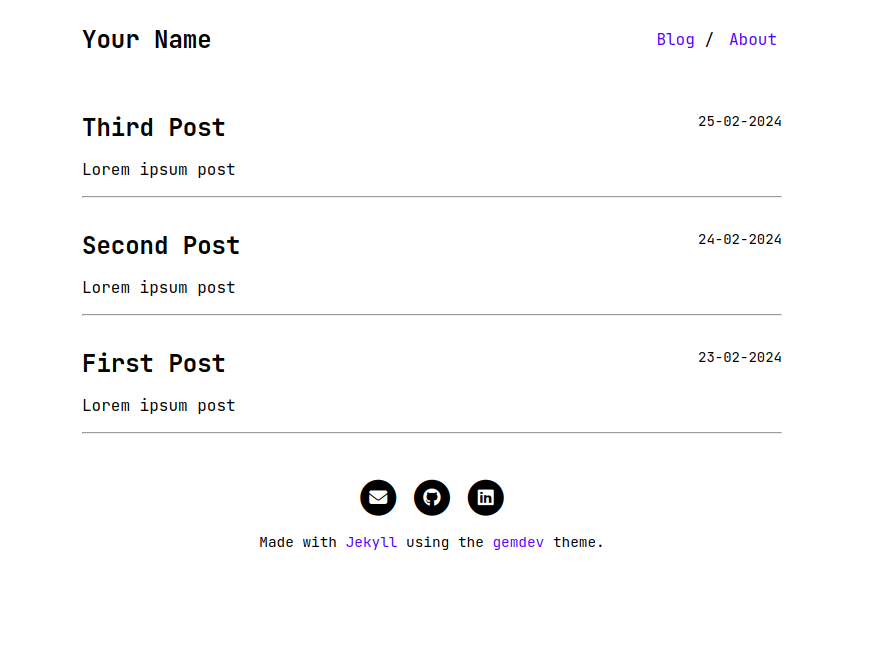
Security News
/Research
Wallet-Draining npm Package Impersonates Nodemailer to Hijack Crypto Transactions
Malicious npm package impersonates Nodemailer and drains wallets by hijacking crypto transactions across multiple blockchains.
A minimalist Jekyll theme for developers.

Follow the steps in this Jekyll Guide if you're beginning with Jekyll from scratch.
Create a new Jekyll project
jekyll new newProject
Build the site and make it available on a local server
bundle exec jekyll serve --watch
Add this line to your Jekyll site's Gemfile:
gem "gemdev"
And add this line to your Jekyll site's _config.yml:
theme: gemdev
And then execute:
$ bundle
Or install it yourself as:
$ gem install gemdev
To update the theme run:
$ bundle update
In _config.yml you can specify:
header_name: provide the title in headerurl: specify the site urlsocial: list your socialsproject: list your projects providing a name, url and descriptionBug reports and pull requests are welcome on GitHub at https://github.com/maykongsn/gemdev. This project is intended to be a safe, welcoming space for collaboration, and contributors are expected to adhere to the Contributor Covenant code of conduct.
The theme is available as open source under the terms of the MIT
FAQs
Unknown package
We found that gemdev-theme demonstrated a not healthy version release cadence and project activity because the last version was released a year ago. It has 1 open source maintainer collaborating on the project.
Did you know?

Socket for GitHub automatically highlights issues in each pull request and monitors the health of all your open source dependencies. Discover the contents of your packages and block harmful activity before you install or update your dependencies.

Security News
/Research
Malicious npm package impersonates Nodemailer and drains wallets by hijacking crypto transactions across multiple blockchains.

Security News
This episode explores the hard problem of reachability analysis, from static analysis limits to handling dynamic languages and massive dependency trees.

Security News
/Research
Malicious Nx npm versions stole secrets and wallet info using AI CLI tools; Socket’s AI scanner detected the supply chain attack and flagged the malware.